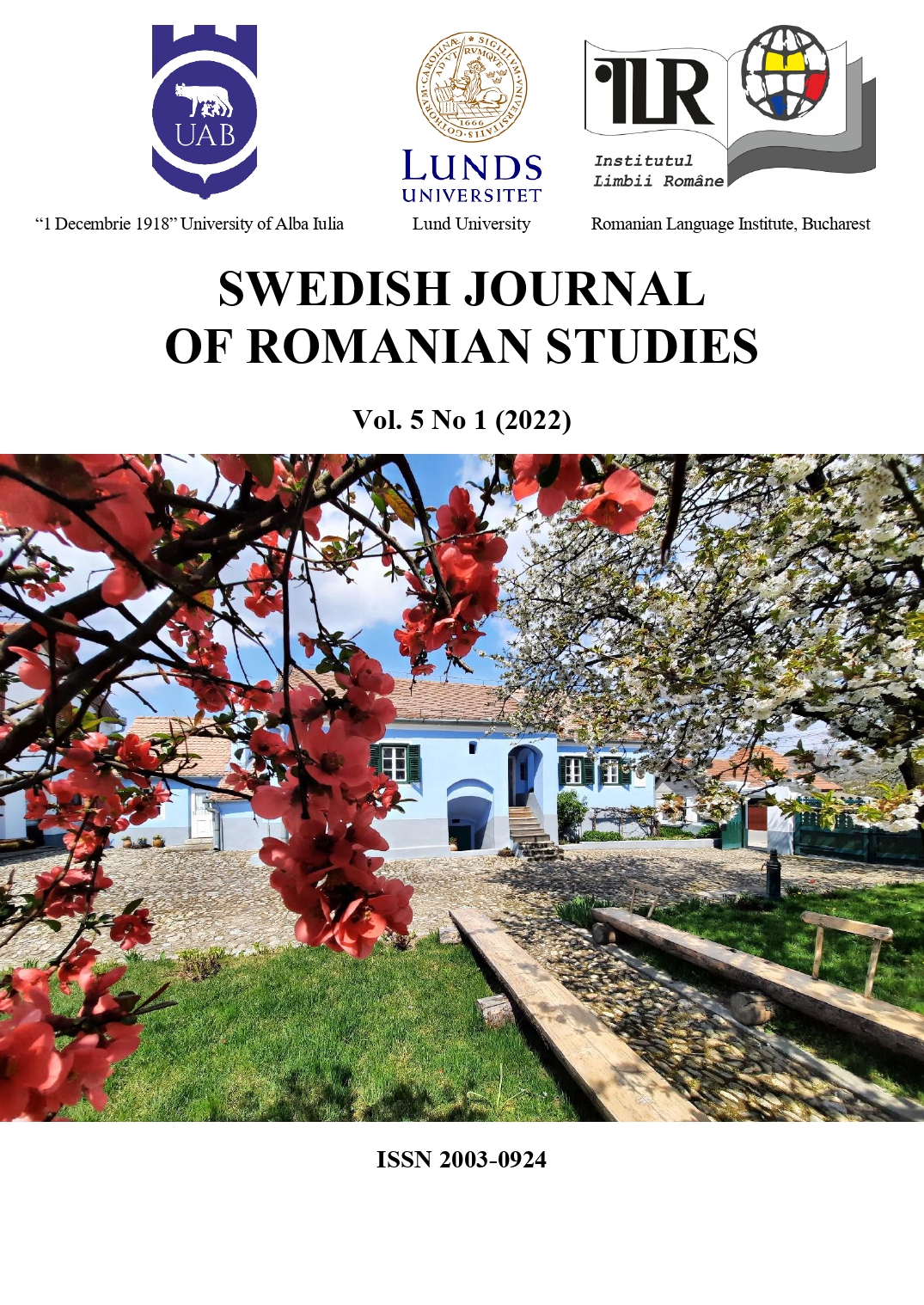Imaginarul rețelelor de socializare și poetica distanțării în romanul Interior Zero de Lavinia Braniște
The imaginary of the social networks and the poetics of detachment in Interior Zero, a novel by Lavinia Braniște
DOI:
https://doi.org/10.35824/sjrs.v5i1.23884Keywords:
poetics, social media, personal relations, millennials, BranisteAbstract
After 2004, the year when Facebook was created, the issue of social networks as increasingly widespread and generalized ways of communication and relationship in society also invested in the field of literature, becoming an ingredient of the literary diegesis. To the extent that the writers of the so-called digital generation, respectively the one born and formed directly in the society of communication technologies, can no longer ignore the presence of social networks in the daily lives of created characters, what kind of imaginary literature does this create? Our analysis focuses on how the narrative voice in Lavinia Braniște's novels establishes a meta-critical relationship with social networks, especially in the universe of the first novel, Interior Zero, published in 2016. We are interested in finding out to what extent, in the age of millennials and the virtualization of existence, literature is a subtle form of ontological resistance through catharsis.
References
Avădăni, I. (2020). În intimitatea contului de Facebook.../ In the privacy of your Facebook profile... În Hermeziu (dir.), Viața pe Facebook. Dau like, deci exist/ Life on Facebook. I like, therefore I am. Iași: Polirom. 211-233.
Bakhtine, M. (1987 [1978]). Esthétique et théorie du roman/ Aesthetics and novel theory. Paris: Gallimard.
Boulton, A. (2011). Anciennes et nouvelles technologies: métaphores de l’esprit linguistique/ Old and new technologies: metaphors of the linguistic mind, ASp, 23-26. 323-333. DOI: https://doi.org/10.4000/asp.2588.
Braga, C. (dir.) (2020). Enciclopedia imaginariilor din România. Imaginar literar/ Encyclopedia of imaginaries from Romania. The literary imaginary. Vol. 1. Iași: Polirom.
Braniște, L. (2016). Interior zero/ Call zero. Iași: Polirom.
Braniște, L. (2019). Sonia ridică mâna/ Sonia raised her hand. Iași: Polirom.
Braniște, L. (2021). Mă găsești când vrei/ You can find me whenever you want. Iași: Polirom.
Dagnaud, M. (dir.) (2011). Génération Y. Les jeunes et les réseaux sociaux, de la dérision à la subversion / Young people and social networks, from derision to subversion. Paris: Presses de Sciences Po. 7-13. https://www.cairn.info/--9782724611953-page-7.htm.
Despentes, V. (2015, 2017). Vernon Subutex, I,II,III. Paris: Grasset.
Durand, G. (2016 [1969]). Les structures anthropologiques de l’imaginaire/ The Anthropological Structures of the Imaginary. Paris: Dunod.
Facebook (2022). Our History. Disponibil pe https://about.facebook.com/company-info/. Accesat la data de 25.04.2022.
Festinger, L. (1957). A Theory of Cognitive Dissonance. California: Stanford University Press.
Hermeziu, C. (dir.) (2020). Viața pe Facebook. Dau like, deci exist/ Life on Facebook. I like, therefore I am. Iași: Polirom.
Hjelmslev, L. (2000). Prolégomènes à une théorie du langage: La Structure fondamentale du langage/ Prolegomena to a Theory of Language: The Basic Structure of Language. Paris: Minuit.
Hjelmslev, L. (1984). Le langage: une introduction/ Language: An Introduction. Paris: Minuit.
Iovănel, M. (2019). Sonia ridică pumnul / Sonia raised her fist. În Scena9. Disponibil pe https://www.scena9.ro/article/lavinia-braniste-sonia-ridica-mana-cronica. Accesat la data de 27.01.2022.
Pelehatăi, I. (2020). Dragoste și drame în vremea Facebook-ului/ Love and drama in the age of Facebook. În Hermeziu, C. (dir.) (2020), Viața pe Facebook. Dau like, deci exist/ Life on Facebook. I like, therefore I am. Iași: Polirom. 235-245.
Prensky, M. (2001). Digital Natives, Digital Immigrants. In On the Horizon, MCB University Presse, 9(5). http://dx.doi.org/10.1108/10748120110424816.
Shoemaker, D.W. (2010), Self-exposure and exposure of the self: informational privacy and the
presentation of identity. În Ethics Information Technology, 12. 3–15. DOI 10.1007/s10676-009-9186-x.
Statista Research Departement (2022). Number of Facebook users in Romania from April 2020 to September 2021, by month. Disponibil pe https://www.statista.com/statistics/1178634/romania-number-of-facebook-users-by-month/. Accesat la data de 25.04.2022.
Wunenburger, J.-J.(2020). L'imaginaire/ The Imaginary. Paris: PUF.
Downloads
Published
How to Cite
Issue
Section
License
Copyright (c) 2022 Cristina Hermeziu

This work is licensed under a Creative Commons Attribution-NonCommercial 4.0 International License.
Authors who publish with this journal agree to the following terms:
a. Authors retain copyright and grant the journal right of first publication with the work simultaneously licensed under a Creative Commons Attribution-NonCommercial 4.0 International License that allows others to share the work with an acknowledgement of the work's authorship and initial publication in this journal.
b. Authors are able to enter into separate, additional contractual arrangements for the non-exclusive distribution of the journal's published version of the work (e.g., post it to an institutional repository or publish it in a book), with an acknowledgement of its initial publication in this journal.
c. Authors are permitted and encouraged to post their work online (e.g., in institutional repositories or on their website) prior to and during the submission process, as it can lead to productive exchanges, as well as earlier and greater citation of published work (See The Effect of Open Access).

